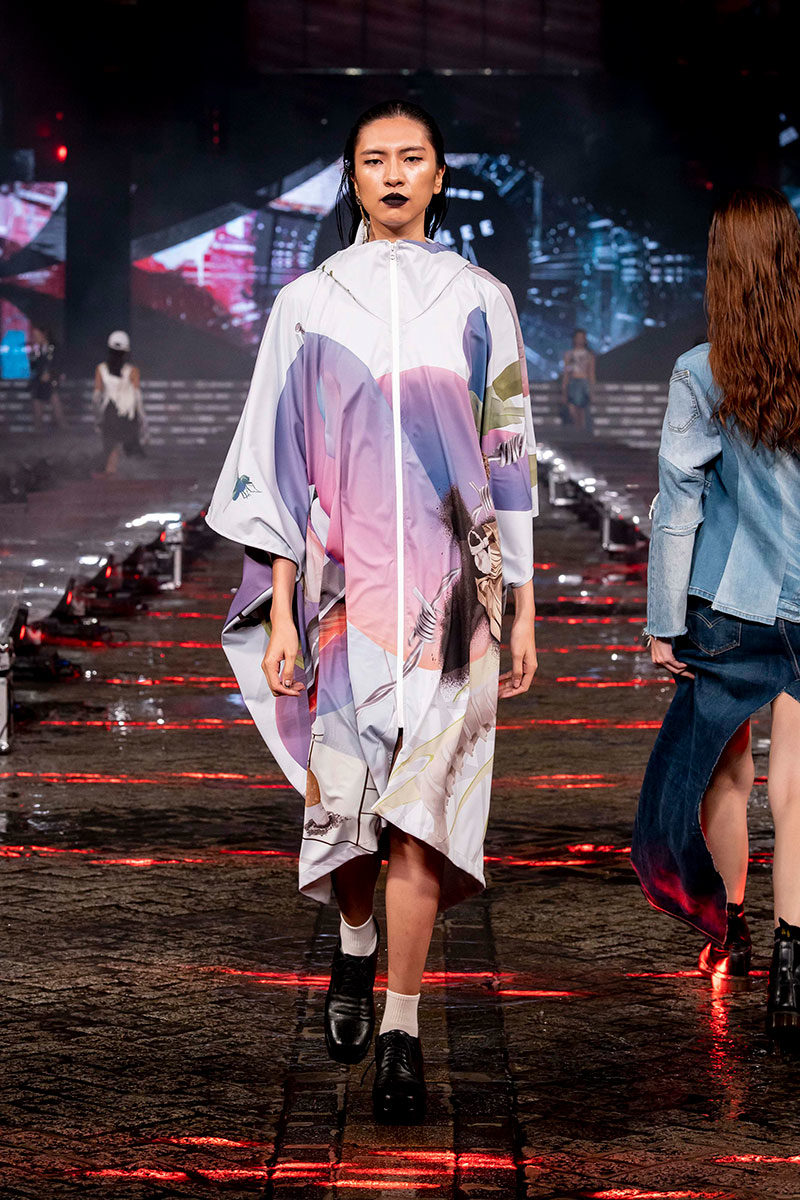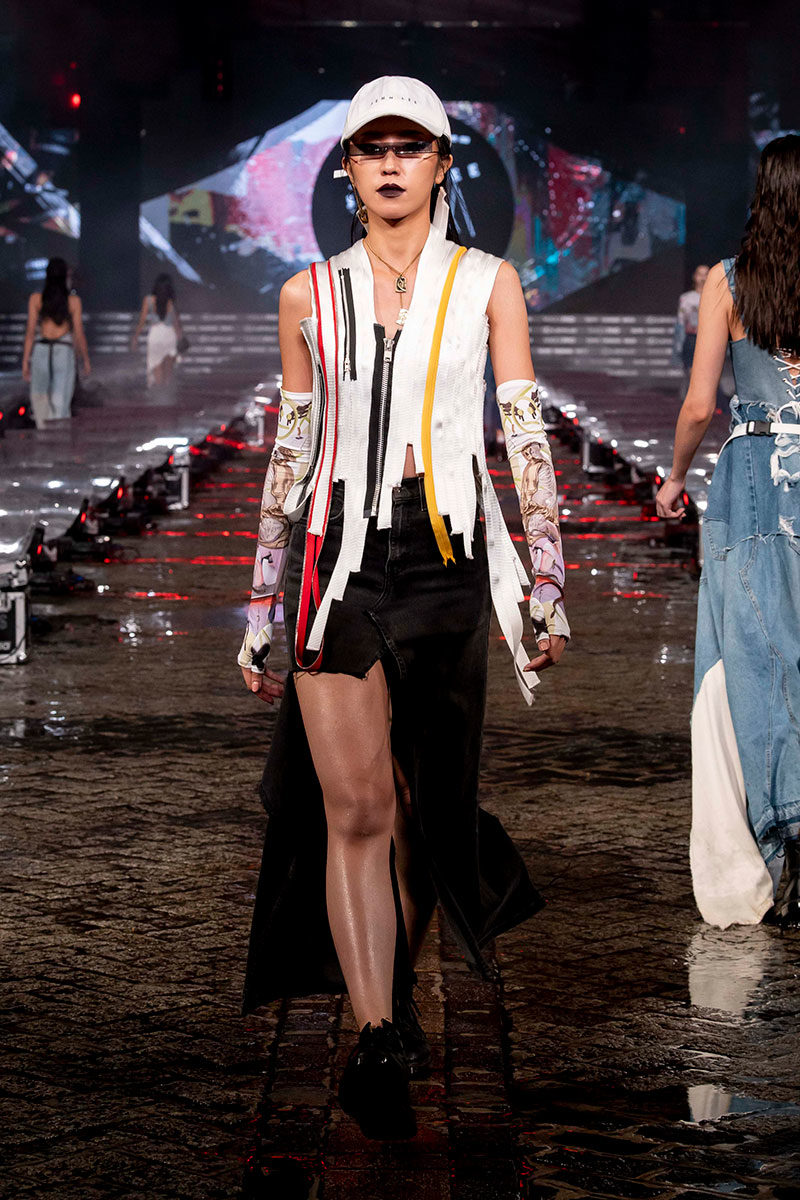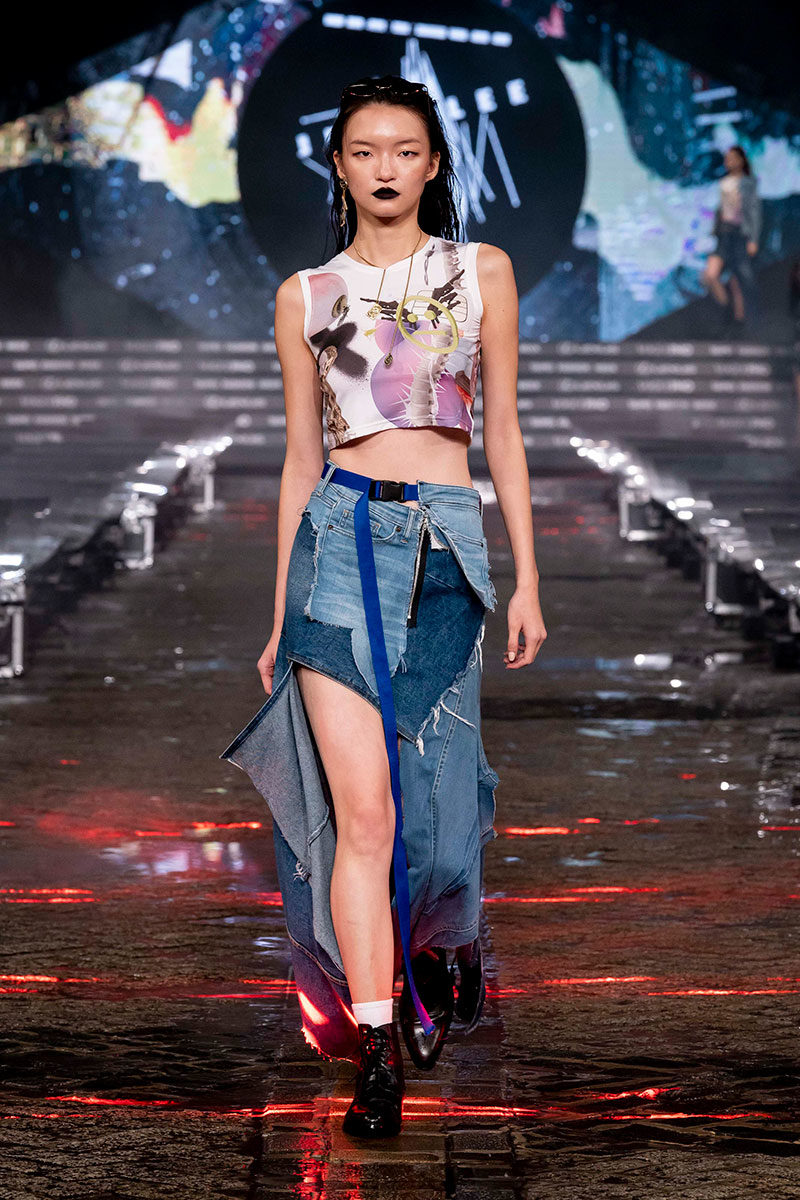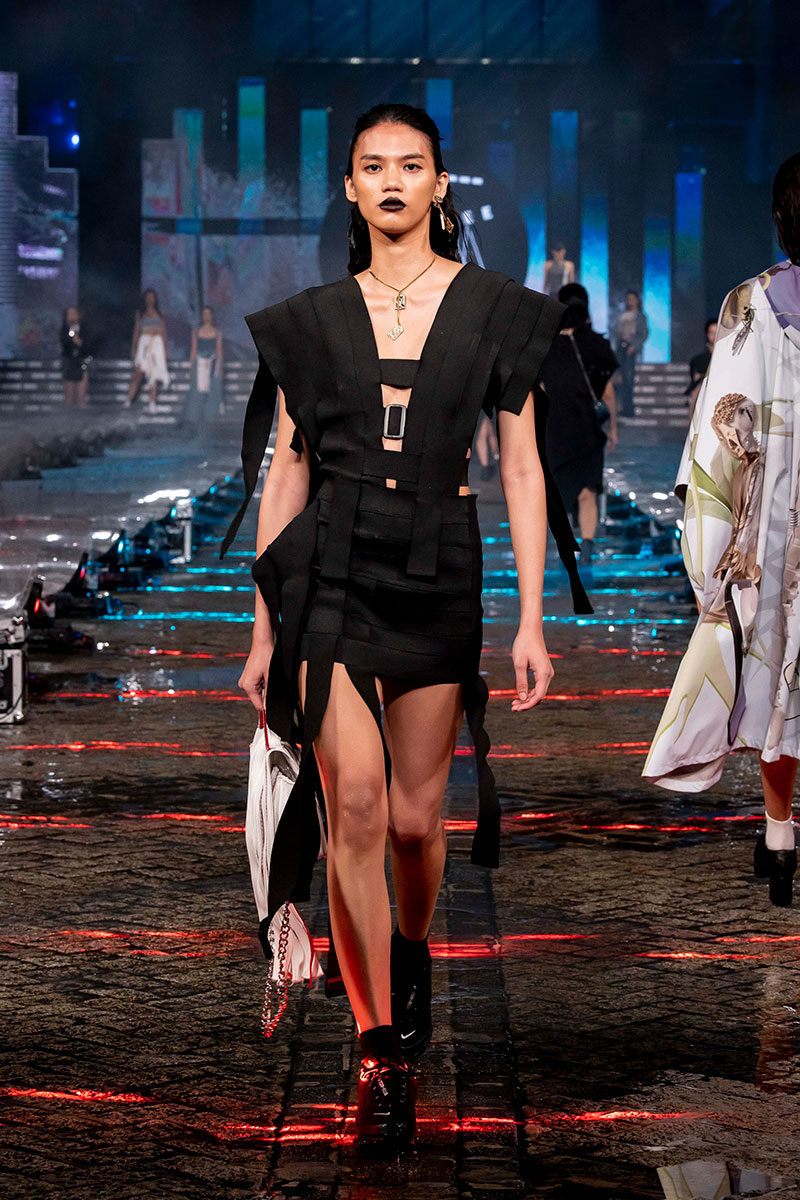For SS21, designer Wei Chen Lee, of Taiwanese fashion label Jenn Lee, looked to waste materials, ranging from discarded ribbons to denim—so far, so upcycled, right? Lee’s green intentions don’t end there, however. The University of the Arts London graduate has joined the likes of Stella McCartney and Bottega Veneta in seeking out biodegradable materials from sustainable natural sources that have the potential to offer a radically cleaner approach.

While Bottega Veneta’s creative director Daniel Lee cracked the formula for autumn 2020’s most-coveted biodegradable boot (it contains both coffee and sugarcane), Wei Chen Lee has turned her attention to bodycon, although her material of choice—the skins of locally eaten milkfish—is, we’ll agree, slightly less palatable.
Before you get the ick, let’s take a minute to remember that manufacturing clothes out of responsibly grown (and pretty weird) plant-based sources is one of sustainable fashion’s greatest modern success stories. For example, California-based Bolt Threads is the ‘material solutions’ company behind the leather substitute Mylo (used by Adidas, Lululemon and Stella McCartney), which is made from the branching, underground structure of mushrooms. But, we hear you—that’s a plant-based solution. Where does that leave us with biodegradable fabrics made from industrially farmed, non-plant-based foodstuffs, such as milkfish collagen? And can the remnants of your fish supper really help minimise fashion’s harmful impact on the planet?
Milkfish (Chanos chanos) has been farmed on an industrial scale for centuries as a food source, but it’s Taiwan’s modern, world-leading textile industry that recognised the fashion potential of the discarded fish scales. Lee’s collaboration with fabric supplier Tex Tile essentially sees the collagen peptide within the waste fish scales blended with biodegradable rayon fibre to create a yarn, which forms the basis of fine-knit designs, such as those bodycon tops.
In new-wave fashion theory, these innovative designs are the byproduct of local food consumption that would otherwise go to waste, but they also pose some heavy-duty questions on the ethics of farming fish on a scale that has the power to transform the way our fabrics are made and biodegrade—yet another poignant reminder that the link between what we eat and what we wear could be more closely aligned than we think.

For Lee, it was ultimately the concept of “rebirth and karma” that influenced her direction for SS21. “In this chaotic world, the only important thing for a person is to find peace and tranquillity, and they both originate from the comfort, confidence and determination from within,” the designer told Vogue.

1 / 5
Jenn Lee spring/summer 2021

2 / 5
Jenn Lee spring/summer 2021

3 / 5
Jenn Lee spring/summer 2021

4 / 5
Jenn Lee spring/summer 2021

5 / 5





